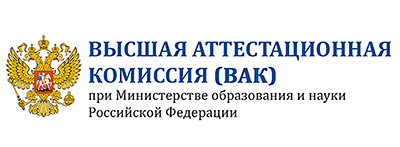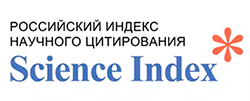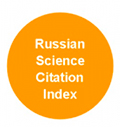Publication Ethics and Publication Malpractice Statement
The “Demographic Review” follows the ethical statements outlined in the Association of Scientific Editors and Publishers (ASEPA) Declaration “Ethical Principles of Scientific Publications” and in COPE’s Best Practice Guidelines for Journal Editors.
The responsibilities of the editors
Interaction with authors is based on courtesy, benevolence, honesty and transparency.
In alignment with our commitment to selfless service to science, we do not charge publication fees and do not pay honoraria to authors.
The editorial board follows the principle of impartiality and equality when evaluating manuscript submissions. We assess the manuscript content without considering the authors' place of employment, official status, race, ethnicity, gender, sexual orientation, religious or political beliefs, citizenship, or disabilities. To maintain fairness, all papers published in our journal undergo a double-blind peer review process, ensuring that the identities of both authors and reviewers remain anonymous.
The Editorial Board is committed to upholding professionalism in the peer-review process. We strive to identify the most suitable and qualified reviewers for each research field. Reviewers may include members of the editorial board and the international editorial council (internal review). However, in most cases, manuscripts are sent to independent experts for external review. When deciding on the publication of materials, the editor considers the opinions of reviewers, other editorial staff, and the editorial board and council. It is important to note that positive reviews alone do not guarantee acceptance of a manuscript for publication.
The Editorial Board is committed to maintaining confidentiality regarding all aspects of manuscript content and review. Information about a manuscript's content may only be shared with individuals directly involved in its professional evaluation, which includes members of the Editorial Team and Editorial Board and, upon reasonable request, specific others. Unpublished data from manuscripts submitted for review cannot be used by anyone without the author's written consent. Additionally, information or ideas that come to the attention of those involved in editing or reviewing must not be used for personal purposes.
The principle of critical analysis guides authors in the writing process. When drafting an article, authors must examine the works of other researchers carefully, analyzing and verifying their conclusions and ideas, especially when those works are used to support or validate their views. This criticism should be scientific and well-founded, focusing on the content rather than the personal traits of the researchers. Additionally, authors should critically assess their results as well. The editorial board will not permit publications that promote social, ethnic, or religious discord.
Copyright
Authors submitting a manuscript as an original article confirm the following:
- The manuscript is original and has not been previously published elsewhere in its current or a closely related form. Manuscripts that have been published as preprints, working papers, etc., may still be considered.
- If any external work or words have been used, they have been appropriately cited.
- The manuscript is not currently under consideration and peer-review by the editorial boards of other publications.
The authors confidently assert that their publication fully complies with existing copyright laws, and they have proactively resolved any potential conflicts of interest related to copyright and the publication of their articles.
The authors retain copyright while granting the Publisher (NIU HSE) a simple (non-exclusive), royalty-free license to utilize the work(s) for reproduction, publication, republication, adaptation, and distribution, unless otherwise specified. Our published material adheres to the CC BY-NC 4.0 license, empowering others to share and utilize the work with proper attribution to the original publication. This ensures that any modifications can be made while promoting non-commercial use, allowing for greater accessibility and impact within the community.
Authorship of the article
Only those individuals who have made substantial contributions to the research and the preparation of the submitted material will be recognized as co-authors of the article. The corresponding author holds the responsibility of ensuring that all co-authors are accurately listed, that they have reviewed and approved the final version of the article, and that they consent to its submission for publication in the journal.
Individuals who have played a significant role in critical aspects of the research project and contributed meaningfully to the article's preparation, yet do not qualify as authors, must be acknowledged as partners and thanked accordingly.
Permission to Use Content
Authors must secure formal, written permission to reproduce tables, figures, charts, diagrams, images, text fragments exceeding 400 words, or any other copyrighted content created by others before submitting their manuscript.
To successfully publish the article, authors are required to obtain the following rights for any borrowed material:
- Non-exclusive rights for reproduction in the article.
- Rights for both printed and electronic versions of the material.
- A perpetual right to use the material, ensuring there are no time limits on its reuse, such as a one-year license.
Authors are allowed to reproduce tables, graphs, figures, text fragments (beyond 400 words), and other content from external sources if they:
- Obtain written permission to use the material in both print and electronic formats from all copyright holders of the material utilized in their manuscript, including any minor adaptations.
- Notify the copyright holder if significant alterations have been made to the original material utilized in the manuscript.
- Properly cite the source of the data in figure descriptions and ensure it is included in the reference list.
- When utilizing freely available content on the Internet, confirm the copyright holder's information beforehand. If the copyright holder is not the content's owner, provide accurate sourcing in figure descriptions and repeat it in the reference list.
Plagiarism Policy
The editors of Demographic Review uphold high standards of academic ethics and are committed to protecting the reputation of authors. We take all cases of plagiarism seriously and do not accept it in any form.
All authors must certify that their work is free from plagiarism and self-plagiarism.
Submitted manuscripts may be checked for similarity to previously published texts using an anti-plagiarism system. If any instances of plagiarism or the inclusion of text fragments without the permission of copyright holders are discovered, or if there are doubts regarding the authorship of the article, the editorial board reserves the right to take the following actions: publication of corrections, withdrawal of the article from the journal, notification to the academic community, prohibition of the author's future publications in the journal, and any necessary legal measures.
All borrowed materials, ideas, or words must be properly cited. Direct quotations should be enclosed with quotation marks and attributed correctly, with the source listed in the reference list.
According to the journal's editorial policy, the following practices are unacceptable:
- Incorrectly paraphrasing another individual's work
- Using elements of another person's work (e.g., figures or tables) without proper attribution.
Self-Plagiarism
If any elements of a manuscript have been previously published in another article, including in the journal "Demographic Review," the authors are required to reference the earlier work. Additionally, they must explain the essential differences between the new manuscript and the previous one, as well as their relationship. It is unacceptable to replicate one's own work directly or to rephrase it; such material should only serve as a basis for new conclusions.
The editorial board recommends that authors include in their list of references any materials they have prepared earlier during the research that informed the submitted article. This includes conference materials, seminar presentations, and similar works.
Multiple or Competitive Publications
Once the material has been published in the journal, the author is not allowed to reproduce the text, in whole or in part, without prior approval from the Editorial Board. Acknowledge the original publication in all future versions or revisions if permission is granted.
Disclosure and Conflicts of Interest
All authors are required to disclose any financial or personal conflicts of interest in their manuscript that could influence the results or interpretations presented. Additionally, all sources of financial support for the project must be clearly disclosed.
Significant Errors
Authors are responsible for ensuring the novelty and reliability of their scientific research results, as well as for the accuracy of the information presented in their articles, including quotations, and statistical and sociological data. If authors identify significant errors or inaccuracies in their published work, they are obligated to notify the editor and cooperate with the editorial board to correct these issues. To foster a respectful and productive academic environment, authors must prioritize integrity in their discussions and debates with fellow authors and publishers.




















